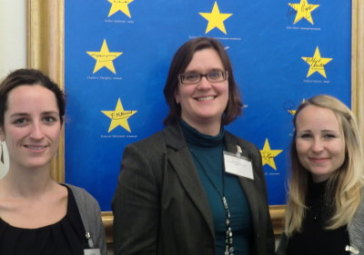Round table conference: Democracy promotion East and South after the Arab Spring Re-evaluating the EU’s Engagement with Authoritarian Regimes

On the 1st and 2nd of December 2011, the round table conference on the EU’s policy towards authoritarian regimes, organised by the Maastricht University, the Trans-European Policy Studies Association and the Institut für Europäische Politik, took place in Brussels.
Senior members of the Brussels diplomatic community and European institutional decision makers, as well as academic scholars and relevant stakeholders came together in an objective minded, academic setting to provide a comparative perspective on EU relations with authoritarian regimes on its Eastern and Southern rim.
The conference aimed to analyse what paradigms and strategies have guided EU policies towards authoritarian regimes over the past decades, and the factors which explain the strengths and limitations of EU democracy promotion in authoritarian countries, in addition to presenting concrete policy recommendations for future EU policy towards authoritarian regimes.
Policy Briefs:
- The European Union (EU) as a ‘Moral Power’ through its Democracy Promotion Policy in the South Caucasus | Syuzanna Vasilyan
- EU-Ukraine Relations: Engagement or Alienation? | Kateryna Shynkaruk
- Re-evaluating the EU’s engagement with the Central Asian republics in light of the Arab Spring | Fabienne Bossuyt
- Engagement, Dialogue and Socialisation | Katrin Böttger
- Belarus: the EU’s permanent challenge | Andrei Fedarau
- Civil Society and young people in Belarus: A force for political change or ‘silent majority’? Options for EU Policy | Giselle Bosse & Olga Kapustina
We would like to thank our sponsors for their kind support: